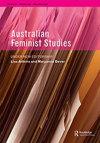土著互联网用户:学会信任自己
IF 1.5
4区 社会学
Q2 WOMENS STUDIES
引用次数: 3
摘要
对许多土著互联网用户来说,“对系统的信任”是有争议的,如果不是虚假的。“信任”这个词象征着我们从200多年的殖民中获得的经验。研究表明,土著人通常是数字技术的早期采用者。在过去十年左右的时间里,社交媒体技术逐渐成为我们日常生活的核心部分。这些平台提供了跨越遥远距离和不同人群的连接机会。他们提供了一个空间来表达一个人的身份,与社区联系,学习,玩耍,寻求爱情,组织政治行动,寻找失去的朋友和家人,寻找工作,在需要的时候寻求帮助——以及更多。土著人民特别利用社会媒体来鼓动社会正义。信息可以传播,事件可以协调,联盟可以跨越很远的距离,在很大程度上不受国家行为体的监视和控制。评估网路行动主义的实际影响并非易事,任何“信任制度”的概念,都要求我们开始渗透该制度,以迫使“它”纳入线上原住民行动者与行动者的观点与经验。本文章由计算机程序翻译,如有差异,请以英文原文为准。
Indigenous Internet Users: Learning to Trust Ourselves
ABSTRACT ‘Trust in the System’ is contentious, if not spurious for many Indigenous Internet users. ‘Trust’ signifies as a term that embodies (and disembodies) our experiences from over 200 years of colonisation. Research has shown that Indigenous people have typically been early adopters of digital technologies. Over the last decade or so, social media technologies have gradually become a central part of our everyday lives. These platforms offer opportunities to connect across vast distances and diverse populations. They provide a space to express one’s identity, connect with community, learn, play, seek love, organise political action, find lost friends and family, search for employment, seek help in times of need – and much more. Indigenous people have made particular use of social media for agitating for social justice. Information can be distributed, events coordinated and alliances spontaneously forged across great distances largely outside of the surveillance and control of state actors. Assessing the actual impact of online activism is not a straightforward matter – any concept of ‘trust in the system’ demands that we begin to infiltrate that system in order to force ‘it’ to incorporate the views and experiences of Indigenous actors and activists online.
求助全文
通过发布文献求助,成功后即可免费获取论文全文。
去求助
来源期刊

Australian Feminist Studies
WOMENS STUDIES-
CiteScore
2.50
自引率
0.00%
发文量
7
期刊介绍:
Australian Feminist Studies was launched in the summer of 1985 by the Research Centre for Women"s Studies at the University of Adelaide. During the subsequent two decades it has become a leading journal of feminist studies. As an international, peer-reviewed journal, Australian Feminist Studies is proud to sustain a clear political commitment to feminist teaching, research and scholarship. The journal publishes articles of the highest calibre from all around the world, that contribute to current developments and issues across a spectrum of feminisms.
 求助内容:
求助内容: 应助结果提醒方式:
应助结果提醒方式:


